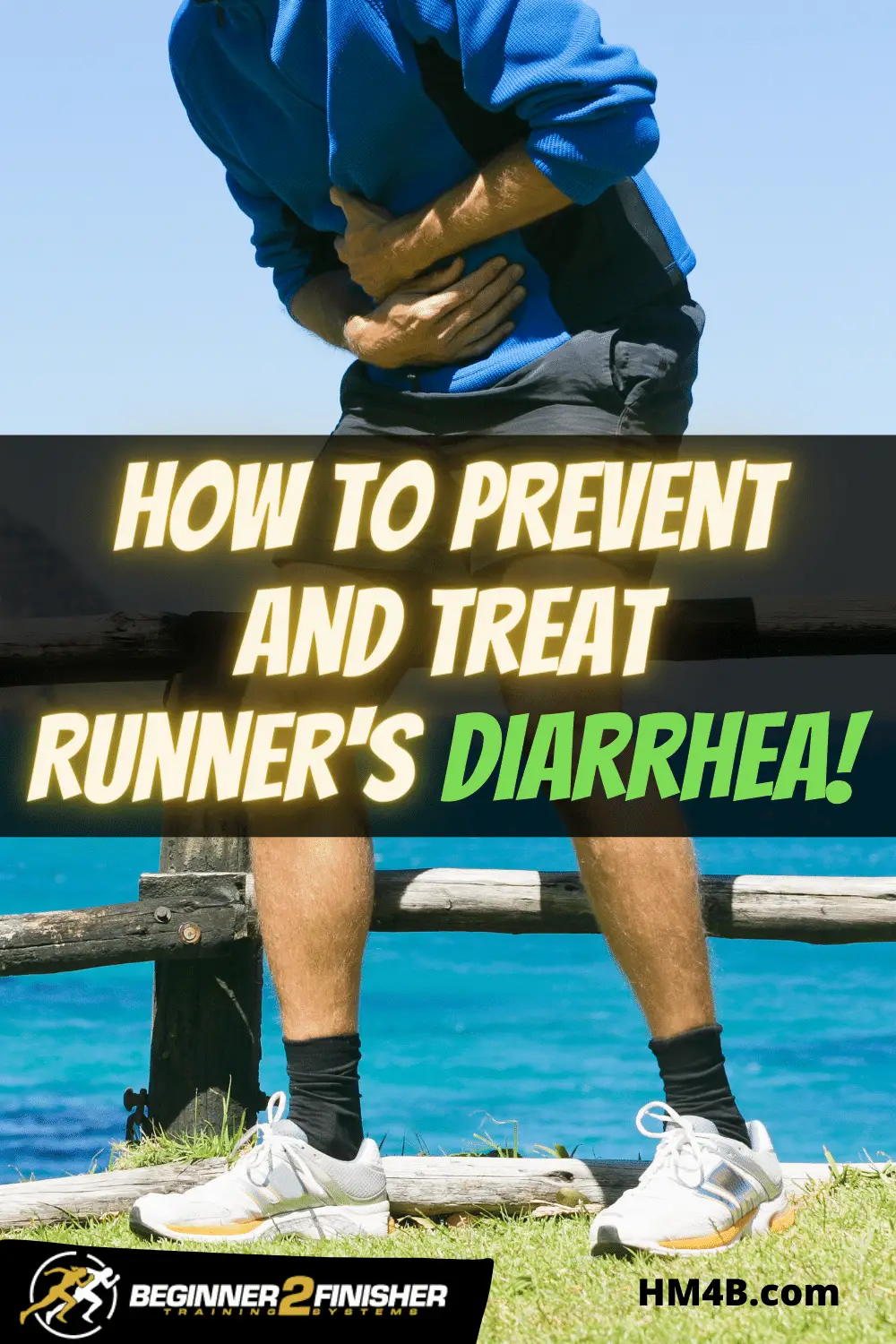Runner’s diarrhea can interrupt not only your running goal but your entire day. Luckily, there are preventative measures and treatments you can undergo to make sure your runs are clear and problem-free.
There are many reasons for a runner’s diarrhea, ranging from food intake to long-term health concerns. In most cases, we can not only treat these but prevent them. Today we’ll dive into how to do both.
What Is Runner’s Diarrhea?
Runner’s diarrhea (RD) is also known as runner’s trots, runner’s tummy, or runner’s gut. Another way to describe it is simply “not a good time.” The RD name speaks for itself; it’s an uncomfortable condition of frequent bowel movements during and/or after a run.
General symptoms include the sudden and strong desire to use the bathroom, nausea, cramping, and diarrhea. These symptoms can begin mid-workout only to last hours after you’ve stopped exercising. RD should not last for more than a day.
RD can affect people of all ages and backgrounds, although it is most commonly seen in long-distance runners, especially those who frequently run 3 or more miles. An estimated 1/3 to ¾ of runners experience gastrointestinal symptoms during their races.
Reasons for Runner’s Diarrhea
Runner’s diarrhea is a common issue in the running world, but its source can vary. Emotions, diet, and physical functioning can all contribute to RD.
Stress
Anxiety and stress can affect everything in our bodies, from focus to digestion. If you find yourself experiencing new stressors or anxiety, especially before a long-distance race or run, you’re increasing your risk for RD.
To counter this risk, participate in activities that refocus your thoughts and lower your heart rate and blood pressure. These include a wide array of breathing exercises and limited-movement stretches.
Foods
If you’re on a high-sugar or high-carb diet, you may be increasing your risk for RD. Try to avoid artificial sweeteners, honey, wheat, and dairy in your meal(s) before running.
You won’t want to start trying any new foods immediately before a long run, either. New additions to your diet can inflame your digestion tract, causing a change in bowel movements. Spicy foods are a prime example to avoid, especially if you aren’t prone to eating them in the first place.
As with any physical activity, it’s important to be conscious of when you eat and drink. Avoid ingesting anything in the hour, at least, before your run.
Related: Best Superfoods For Runners!
Internal Changes
Exercising – running especially – causes your muscles and organs to jostle as you move. During physical activity, your body also starts producing certain hormones, like cortisol. All of these changes can affect your digestive system and initiate RD. It’s important to note your workout boundaries and tread lightly when pushing yourself towards new fitness goals.
Preventions for Runner’s Diarrhea
You can counter runner’s diarrhea by taking preventative measures before you run. Preventions include aspects of your diet, self-monitoring and regulation, and taking supplements. These can be done from weeks before your race day up until the day you’re speeding through town.
A Day or More Before Running
Probiotic supplements can help with regular, healthy bowel movements. The more regular you are before running, the more predictable you will be. Probiotic supplements can be taken as part of a daily regime. Research has shown decreased gastrointestinal symptoms for marathon runners taking probiotics.
Decrease or eliminate your intake of high-fiber foods at least one day before running to avoid increased gas production, which could spark RD.
Hours Before Running
Electrolyte-infused beverages can help any runner achieve their maximum potential. The key is to regularly hydrate before running, not only in the moments before. Drinking right before a run can cause cramps and irritation, so make sure to make it a habit and not just a pre-workout drink.
You’ll also want to add caffeine, high-fat foods, and drink sweeteners to the “avoid” list before your run. These can all bring about negative side effects, including unexpected bowel movements, when paired with running.
Generally speaking, it is best not to eat or drink two hours before your physical activity, if you can avoid it.
Related: Does caffeine boost running performance? How much caffeine should I consume before a run?
While Running
Sticking with a stable running routine can help you understand your body and its movements. Pay attention to how you feel and when you feel it.
Stay hydrated while running by drinking small amounts of water regularly. Heed caution when it comes to energy bars or drinks, especially if they’re new to you. They may cause runner’s diarrhea.
Underlying Conditions
If you’re having symptoms of runner’s diarrhea that last more than a day or appear suddenly and continue, you may have an underlying condition unrelated to running. Make an appointment with your doctor to check for other conditions such as celiac disease or irritable bowel syndrome.
Some symptoms which warrant professional consultation include:
- Diarrhea and/or nausea lasting a day or more
- Feeling dizzy or losing consciousness
- Sudden head pains or headaches
- Heart palpitations: This is when you feel like your heart is pounding, fluttering, racing, or skipping a beat.
- Bloody or dark stool
Treatments for Runner’s Diarrhea
Most treatments for runner’s diarrhea can be combined with the preventative factors above. Lifestyle changes, such as monitoring your diet, are the first course of action. You should also pay attention to your running outfits and uniforms. Switching to more loose-fitting athletic clothes during your run will ensure there is no extra pressure on your abdominal area.
Some over-the-counter (OTC) treatments include liquids or tablets such as Pepto Bismol, pharmaceutically known as bismuth salicylate. These are best taken after your run with a light snack to treat RD symptoms. Try not to consume these OTC options on an empty stomach, as they could worsen feelings of nausea.
Following up with your doctor is the best way to not only treat runner’s diarrhea but to ensure it is the source of your symptoms. Other underlying conditions can imitate or even exacerbate a runner’s diarrhea. Doctors can ensure that you aren’t experiencing lactose intolerance, gluten intolerance, gastritis, or irritable bowel syndrome.
For most people, monitoring symptoms and enacting small lifestyle changes are the best treatments to rid themselves of RD.
References
https://pubmed.ncbi.nlm.nih.gov/27798441/
https://www.mayoclinic.org/runners-diarrhea/expert-answers/faq-20058107


2 thoughts on “Why Does Runner’s Diarrhea Happen? How To Prevent & Treat”